"Initially, we aimed for human consumption, but we soon realized that the market for seaweed biostimulants offered more opportunities to create a broader impact," says Hermann Schips, CEO of Kelpinor, whose attention got stuck on the plant during a sailing trip.
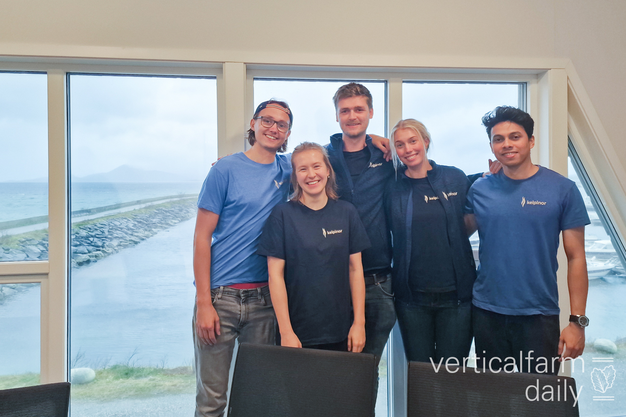 The Kelpinor team at the
The Kelpinor team at the
In the small town of Sandhornøy, yet, inside a picturesque office building, just outside the Norwegian coast, a crew of seven is set to demonstrate the potential of seaweed biostimulants in open-field agriculture and CEA. Founded in 2022, Kelpinor has quickly made a name for itself by developing biostimulants from brown algae, just harvested outside the office. The biostimulant named Kepinor Suspension aims to enrich plant growth, improve resilience, and reduce the use of synthetic fertilizers.
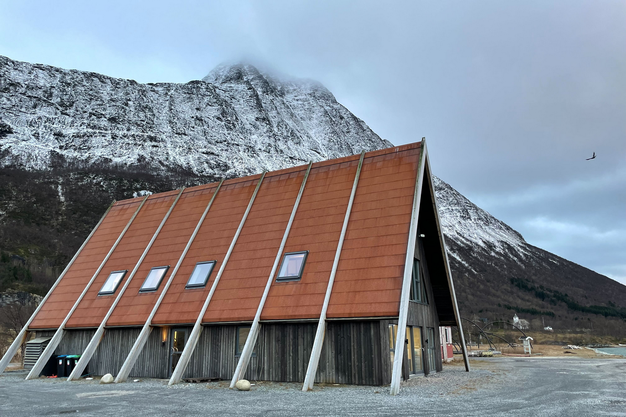
The Kelpinor office, just near the shore
Over the past four months, Kelpinor has been working to standardize its experimental protocols. "Since the initial drawings, much progress has been made, and we're already generating data that guide our product development and validate our product portfolio," Hermann adds. Today, Kelpinor focuses on developing paste-based biostimulants that are easy to apply foliar and highly effective when deployed in the field or in the farm.
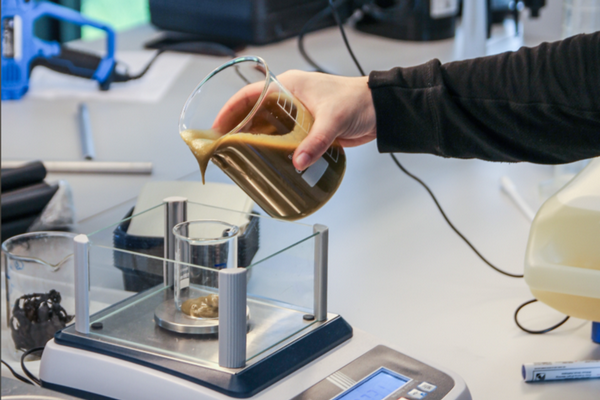 The biostimulant paste
The biostimulant paste
What's different from regular stimulants?
Biostimulants are often compared to supplements for plants, boosting their natural processes without altering their genetic makeup. "Our product promotes longer root systems, increasing the plant's ability to take up nutrients and water," says Lydia Schmidt, Product Developer. "It also enhances chlorophyll production, enabling plants to capture more energy through photosynthesis."
"By leveraging the bioactive properties of seaweed, Kelpinor's biostimulant has shown promise in improving root growth, leaf area, and overall plant biomass," adds Christoffer Joys Røang, Head of Production. Seaweed naturally contains compounds that stimulate plant hormone production, improving their immune system and stress tolerance.
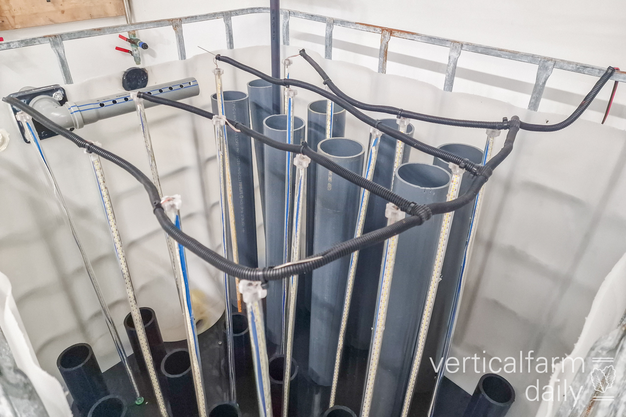 Seaweed grown in tubes indoors
Seaweed grown in tubes indoors
Product testing and validation
Kelpinor is actively collaborating with universities and research institutes, including SINTEF, to validate the efficacy of their biostimulant. Current trials include testing on tomatoes, mustard, and radishes to measure root length, leaf area, and biomass improvement under varying conditions.
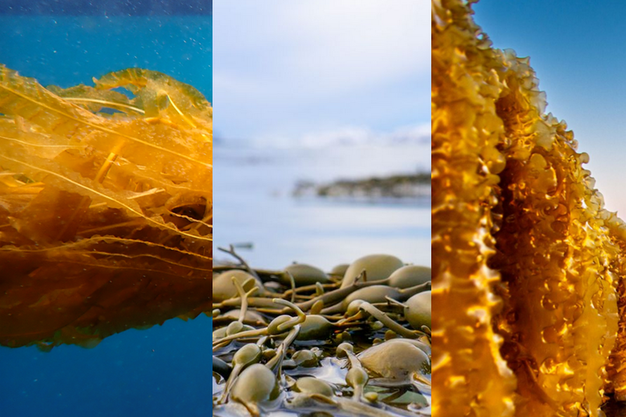
"We're working towards a standardized testing method to show consistent, credible results to our clients," says Lydia. The team uses in house developed AI models to analyze daily photographs of plants, tracking growth rates, leaf size, and other key metrics. The models built by Arshad Kadevalappil, Researcher & Analyst, will help the team to say what happened over a certain time, and compare Kelpinor's product to other biostimulants."
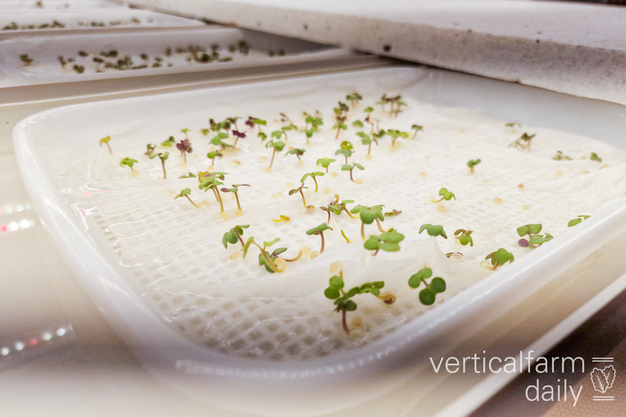 Ongoing trials
Ongoing trials
One of their most intriguing tests involves drought tolerance. "We're investigating whether our biostimulant can help plants thrive better with less water," Lydia explains. This could provide a valuable solution for growers facing extreme weather conditions. Kelpinor is also experimenting to understand how Kelpinor Suspension helps reduce necrosis from strong light.
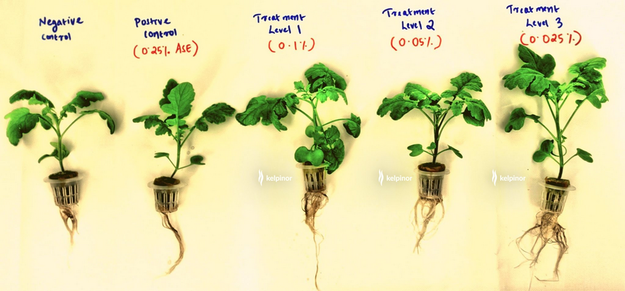 Results of a biostimulant trial
Results of a biostimulant trial
Seaweed paste to retain bioactive properties
However, developing a seaweed-based biostimulant comes with its challenges. Drying seaweed, a common preservation method, can reduce its bioactive properties. Kelpinor aims to avoid this by maintaining its product in paste form, ensuring maximum efficacy. "We believe that drying might remove some beneficial elements. Our product is completely safe and retains its bioactivity," Christoffer explains.
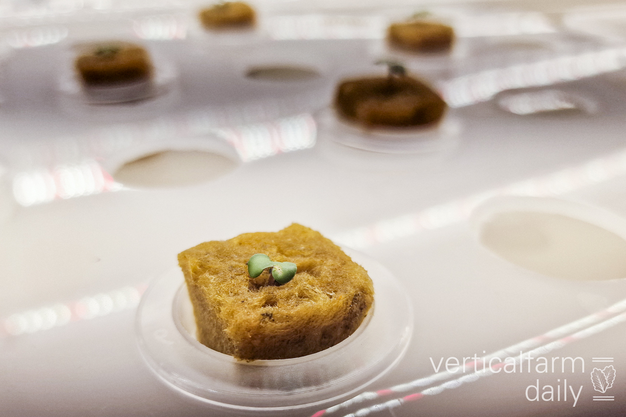
Yet, that isn't the only goal. "Ultimately, we would like to show both farmers, indoor and outdoor, how we can help reduce the dependency on synthetic fertilizers by adopting our biostimulant," Hermann stresses. Using these tricks when extreme weather conditions occur is nothing new, as Norwegian farmers have done this for hundreds of years. Making use of this opening, the team has been able to further improve its biostimulant to help plants withstand heat stress, drought, and other environmental pressures.
The startup recently bagged 2.7M NOK (€228,000) in funding to accelerate research into the specific compounds of its biostimulant. "We aim to concentrate these compounds further, potentially tailoring the product to specific crops or stress conditions. We want to show that biostimulants are not just an additional cost but a valuable tool for increasing productivity and sustainability," Herman concludes.

For more information:
Kelpinor
Hermann Schips, CEO & Co-founder
+47 4682 2092
Vågsosen 10
8130 Sandhornøy, Norway
[email protected]
www.kelpinor.no
